
Classroom
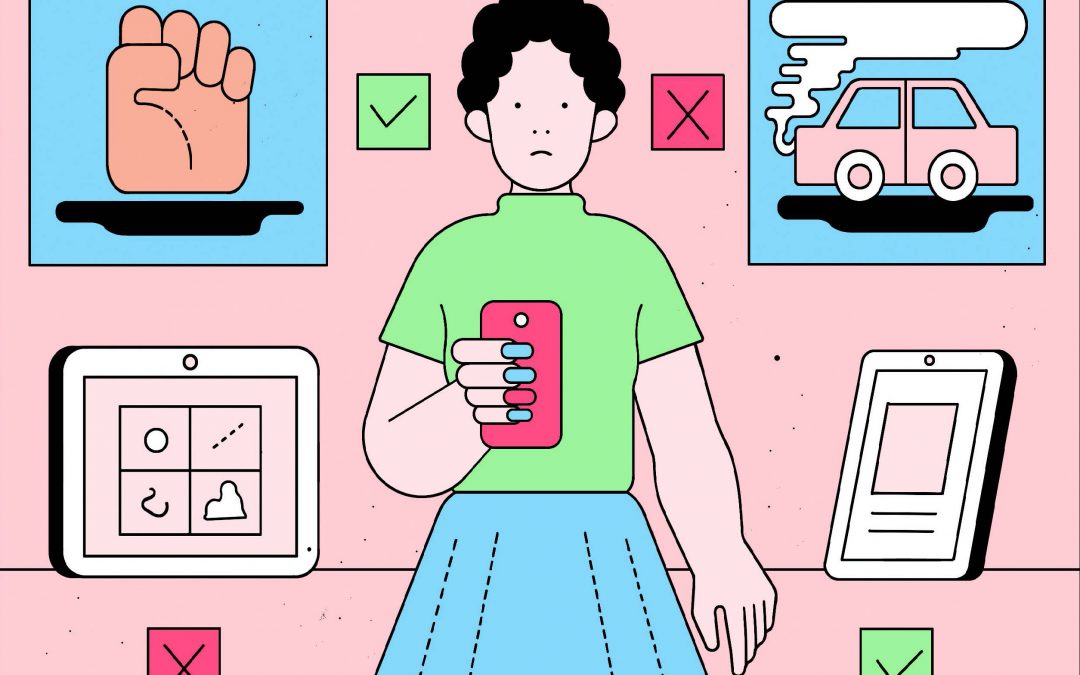
TAKING A STAND: MEMBERS OF THE CLASS OF 2021 FOLLOW THEIR DREAMS
A long-standing trait of Milton students is their passion for taking on issues important to them. But this generation of students are especially attuned to the issues affecting the world today and are actively involved in trying to shape their future. They are informed, courageous, and optimistic. We talked to five seniors about causes they care about—their involvement and their future paths.
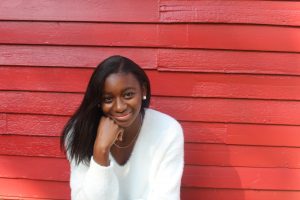 Kayla Mathieu
Kayla Mathieu
COMMUNITY SERVICE
For KAYLA MATHIEU ’21, community service started at a young age. Her father is from Haiti and the whole family has been involved with helping people on the island—from collecting items for first-aid kits or basic-necessities packages to helping rebuild a hospital after the 2008 earthquake.
“Ever since then, I’ve always just felt it was my duty to help people, knowing that I have all this privilege” Mathieu says. “And I know it sounds cliché, but when you have this privilege, how could you not want to help people?”
In Milton’s Middle School, Mathieu began volunteering for the Special Olympics. Every Sunday, the Milton-Quincy Mustangs practiced on campus for the fall soccer, winter basketball, and spring track and field seasons. Student volunteers assisted athletes as mentors and buddies to develop skills for season competitions.
At first, Mathieu says, she was following in the footsteps of her sister KENYA ’19, but “I found that I really liked working with kids. You definitely have to learn how to communicate in a different way. Also, I had never thought about what parents who have kids with special needs go through every day. So that gave me a new perspective, because it’s not something you hear a lot about.”
In the Upper School, Mathieu has served on the student board for Community Engagement Programs and Partnerships since the second half of her freshman year. In addition to Special Olympics, she started weekly service visits to the Milton elementary school she attended, helping with French immersion classes. Eventually she transitioned over to the Taylor School, a Boston public elementary school, where she ran art projects.
“To bring a diverse group of volunteers there is particularly important, because it is a school with majority students of color,” says Mathieu “So to see volunteers who look like them is helpful.”
When the Taylor School went to remote learning, Mathieu started helping its writing specialist virtually. “It’s definitely hard to get the students to participate online, especially to maintain focus, not only because they’re so young, but also because of some of their home situations. But it’s still been a good experience, and we have fun together.”
Mathieu is looking at a career in medicine and says that continuing community service in college is a priority.
“In my college search, one of my top requirements is that there’s an active community engagement program so that I’m not only going to the school in whatever town it’s located in, but I’m also an active member of that community.” In addition to becoming a doctor, her long-term dream is to someday volunteer with Médecins Sans Frontières, an international humanitarian nongovernmental organization known for its projects in conflict zones and in countries affected by endemic diseases.
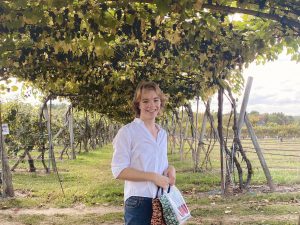 Walker Harris
Walker Harris
LGBTQ+ ADVOCACY
On campus, WALKER HARRIS ’21 is a strong advocate and a voice for those who might not be quite comfortable yet with their lgbtq+ identity. He was elected the coordinator of the student lgbtq+ Affinity group at the end of his freshman year.
“It’s been one of the biggest commitments and a pillar of myence at Milton,” says Harris. “When I first started coming to lgbtq+ Affinity, it was a significantly smaller space and was a little more niche. During my sophomore year, we tried to build out and reach as many people as possible.”
At Milton, student-run affinity groups provide space for students who share an identity. Groupsusually meet weekly; some keep membership confidential so that students can be comfortable attending. Roughly 60 members routinely come to lgbtq+ Affinity meetings.
“It’s quite a vibrant community, which has played an important role in a lot of students’ lives,” says Harris. “As I became more involved, peers began to reach out to me, whether to help with coming out to parents or dealing with adults who get pronouns wrong or maybe who have said some upsetting things during classes.”
He also helps out with Trans Affinity, a smaller group that is coordinated by another student. And there is gasp (Gender and Sexuality Perspectives), which is a student club. It’s open to everyone and serves more as an educational experience, such as in hosting assemblies and speakers.
Harris says he’s been documenting the history of lgbtq+ Affinity, which was started at Milton about 30 years ago as an unofficial student group called the Cookie Exchange.
“It had none of the recognition like we do now,” says Harris. “It was just a small group of friends who had all come out to each other and gathered to exchange cookies, but it was the beginning of the first queer affinity space on campus.”
Although many of today’s lgbtq+ students are more comfortable being public with their identity, Harris says there is still contention within the community about how public and open it can and should be.
“Today’s Milton is an overwhelmingly liberal place, although not as much as people might think,”rehe says. “The discrimination that happens on campus is usually in the form of micro-aggressions. Those should be addressed, but it’s not the same level of systemic overt oppression that had historically been experienced.
“But I also think what we see is that a lot of the ways our community is still hidden are somewhat self-imposed. And I say that not to minimize it or diminish it, but because it is still a deeply uncomfortable thing. A lot of straight people aren’t comfortable with their sexuality and gender either.”
As a coordinator, Harris can approach the Office of Multiculturalism and Community Devlopment with student concerns and issues, such as addressing the discipline system and specific anti-homophobic, anti-transphobic, anti-racist language. He is also focused on supporting students from countries where it is illegal to be gay who have been home during the remote learning period.
Outside Milton, Harris is involved with glesn (Gay and Lesbian Education Student Network), a national organization that works to ensure that lgbtq+ students can learn and grow in a school environment free from bullying and harassment. He is also involved with bagly (Boston Alliance of lgbtq+ Youth), which offers workshops and advocates for programs and services for lgbtq+ youth.
Harris plans to continue his advocacy in college. “My community is something that matters a lot to me,” he says. “Something I’ve considered while looking at different college campuses is how strong the queer community is there.”
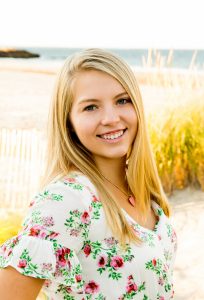 Sam Bevins
Sam Bevins
POLITICS
2020 was a busy year for SAM BEVINS ’21, despite the pandemic. She worked to pass youth voting legislation in Massachusetts, volunteered on a national level for the Biden campaign, and ran an engaging Instagram account @samspoliticalscoop.
The importance of civic engagement was instilled in Bevins early on. Her grandmother was Vice President Al Gore’s family policy advisor. Her mother also worked for Gore, as a deputy director of national service, and is a close college friend of Senator Kirsten Gillibrand. A young Bevins tagged along to many of the senator’s events.
“I remember the first time, in seventh grade, that I really listened to her whole 30-minute speech,” says Bevins. “She laid out the stats about women, our lack of leadership positions, the mountains we still have to climb, and the glass ceilings we still have to break. At the time, there were only 20 female senators, and I remember being upset by these facts.”
Bevins says that because she was raised by two politically involved women, she was shielded a bit from the inequalities for women. After feeling crushed by Hillary Clinton’s defeat in 2016, Bevins turned her attention to when she would be eligible to vote, in 2020. At Senator Gillibrand’s presidential campaign launch, an advisor approached Bevins and asked for her advice on 17-year-old voters in Iowa, who could vote in the caucus for the first time because of recently passed legislation. This inspired Bevins to look into whether other states had similar laws, including her home state of Massachusetts.
“Our generation is very involved in politics,” says Bevins. “There is no way you can be on social media and not see something political. I hope we continue to stay engaged now that the election is over. When I researched reasons to support the youth voter legislation, it was interesting to see how many researchers have found that voting is habitual, and habits are formed at a young age. If you vote for the first time when you’re 18, the percentage chance that you vote again is much higher than if you vote for the first time when you’re older.”
After a lot of research and legwork, Bevins testified last spring before the Joint Committee on Election Laws at the Massachusetts State House on H.4161, her proposed bipartisan legislation to allow 17-yearolds to vote during a primary election if they will turn 18 in time for the general election. The motion was eventually put on hold because of covid-19, so although it did not pass in time to affect the 2020 pri-maries in Massachusetts, it is not off the table, and Bevins is still involved in the process.
When Biden became the Democratic presidential candidate, she became the national events leader for High Schoolers for Biden and she was co-chair of the Massachusetts chapter. She held three or four virtual events a week. “It was the best way for me to see the community aspect of politics, because I’ve made so many friends through the campaign,” she says.
Bevins is looking toward a future in politics. She wants to study government or international relations in college with a focus on Latin American studies or African American history, because she is passionate about immigration policy, racial justice, and criminal justice reform. Her ultimate goal is to run for office at the federal level.
“I really do believe in the positive aspects of politics and that change can come out of politics and public policy,” she says. “Honestly, the partisan nature of our country right now motivates me even more to get into politics and bridge some of the divides.” —
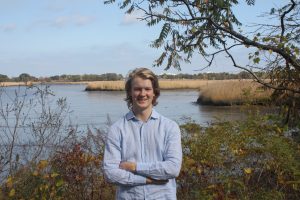 George Rose
George Rose
ENVIRONMENT
The idea of solving climate and environmental problems can feel overwhelming because they touch almost every aspect of human life. It helps to have a particular focus. For GEORGE ROSE ’21, that’s transportation.
During a childhood illness, his father bought him a Thomas the Tank Engine set. He spent a lot of time playing with trains, and from there,his fascination with all things with wheels expanded to include trucks and cars. As he grew older, Rose became more aware of transportation’s negative effect on the environment.
“Once I learned about the effect of emissions,” he says, “I also began to learn about the great potential we have to not only reduce our emissions, but also make our transportation system better. I was pretty hooked after that.”
He also has a love of animals and biodiversity, which was fostered by elementary and middle school projects. A map of per capita carbon emissions that he drew still hangs inhis room. “My main interest now is in some of the technologies to fight against the problems in transportation,” says Rose.
The summer after his sophomore year, Rose did an internship at the Sierra Club’s Massachusetts chapter. His main project focused on the fight against a proposed compressor station in the town of Weymouth. An energy company wanted to build the station to connect two existing natural gas pipelines, but local residents were concerned about safety and environmental issues.
“We were in the State House a fair amount,” Rose says, “dropping off materials to state reps and senators. During one of the hearings I went to, Governor Baker came and testified, so that was pretty cool. I learned a lot about the local political system.”
Rose also spent time gathering data from towns on their sustainability practices. And he conducted research on “green zones,” which the city of Pittsburgh was interested in implementing in its effort to reduce emissions. He also wrote letters to the editor at local newspapers. “At the Sierra Club, it was just cool to be around people who cared and were dedicating their careers to that,” he says.
This year, he is one of the heads of the student Sustainability Board. The group has arranged for speakers to give talks to the Milton community over Zoom, including Kerry Emanuel, professor of atmospheric science at mit, and Rose’s former boss, Jacob Stern, deputy director of Sierra Club’s Massachusetts chapter.
“I’m hoping to use the speaker series to build some momentum among the student body and hopefully make some change on campus,” he says.
Rose is looking forward to college, where he can continue to pursue his interests. “This is definitely what I want to do for my career,” he says. “I’ve spent a lot of time thinking about exactly what path I want to take. I will major in either engineering or physics, because a good understanding of the mechanics— like electricity, magnetism, and thermodynamics— is really important, and then hopefully get a master’s in engineering or energy science. Then I can go into entrepreneurship with a focus on clean technologies.”
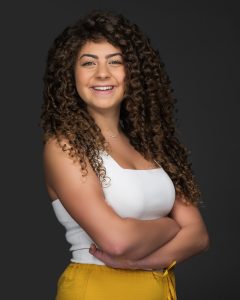 Jana Amin
Jana Amin
MUSLIM WOMEN AND GENDER PARITY
JANA AMIN ’21 uses her voice and life experiences to work on changing the narrative around Muslim women, particularly young women and girls. She spent two years conducting research on three continents to deepen the understanding of a 20th-century Egyptian princess whose story had been only partially told. Her work culminated in giving a TEDxYouth talk in Boston when she was a junior.
Amin, who is a co-head of Milton’s Muslim Student Association, grew up in Egypt. When she first came to the United States, she attended a school where the students had international backgrounds similar to hers. But when she entered Milton’s Middle School, most of her peers were from local towns, and their interactions with international students, particularly with Muslim students, were limited.
Amin says it was classroom conversations and friends’ questions about what it was like to grow up in Egypt where she heard some inconsistencies between their perception of Muslim women and the Middle East and her own experiences. “I quickly realized that part of my mission was definitely going to be raising awareness about some of the misconceptions and helping fight those stigmas,” she says.
She found her voice, and the skills and tools she needed to articulate her message, on the Middle School Speech Team. “I learned that all our voices have power,” she says. “It’s about understanding how best to use them to amplify that power and to extend that as much as possible.”
As a freshman, she traveled on a school trip to Jordan, where students visited the Collateral RepairProject (CRP), a non-governmental organization that works with refugees on community-building, education, and trauma relief. She was so moved by the group’s mission that she became an “e-learning partner” in her sophomore year, video-chatting with students to help them learn conversational English. Amin also became involved with CRP’s SuperGirls program for girl refugees.
“I’m passionate about girls’ education, and I wanted to help with visibility for this small program,” says Amin. To celebrate her 17th birthday, she hosted a virtual event, #17for17: Advocating for Girls’ Education, which brought together 17 speakers representing more than 15 countries to discuss the importance of girls’ education.
Over the past couple of years, Amin’s focus has broadened to furthering gender parity in general. Last September, for the UN General Assembly, she spoke on a panel about policies to further the UN 17 Sustainable Development Goal Initiatives. “My focus was on how we can—on an individual, governmental and business basis—center the voices of young women and girls, especially as we think about global recovery from covid-19,” Amin says.
She will continue pushing for youth-inclusive spaces, particularly ones that value the voices and the perspectives of young women. “It’s important to include youth voices and perspectives and let them advocate for issues they care about,” she says. “Youth inclusion is so important in creating change because at the end of the day, they know what their communities most need.”
STORY BY LIZ MATSON




